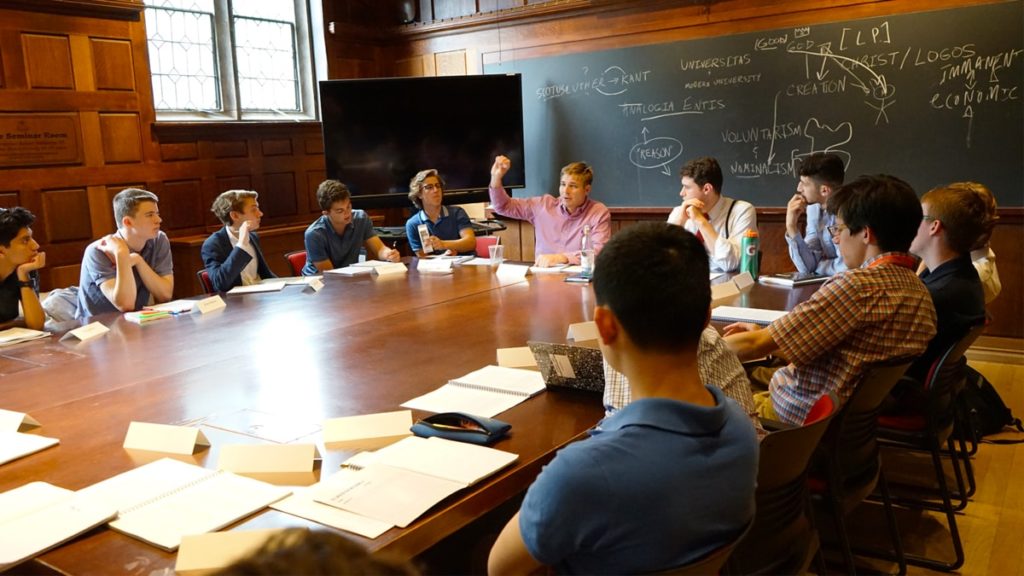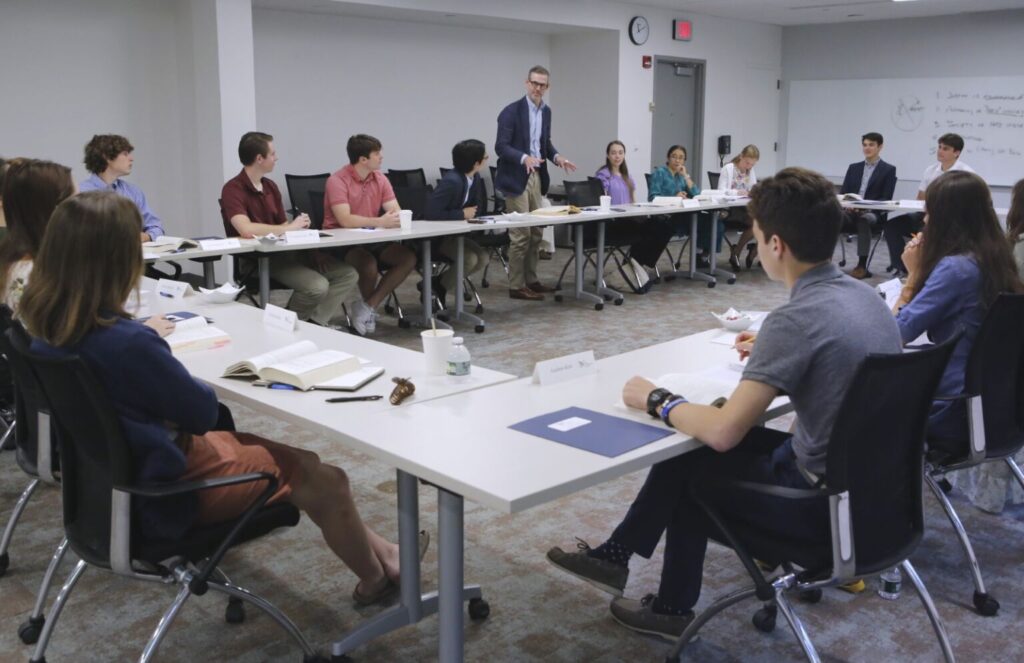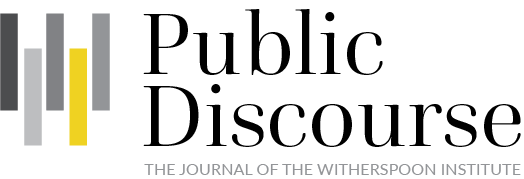HIGH SCHOOL SEMINARS

The Witherspoon Forum
Seminars held throughout the school year
Students in 10th-12th grade are eligible for the Witherspoon Forum, our online seminar series for high school students, first launched in Fall 2020. The Witherspoon Institute welcomes high school applicants who are serious about their studies, eager to pursue the truth, and willing to reflect upon their beliefs. No prior exposure to the study of philosophy is necessary, just the willingness to read the assigned texts, to learn from Witherspoon’s professors, and to converse with peers. Those who attend three or more seminars will be recognized as Witherspoon Scholars, and they will receive priority consideration for our week-long summer seminar in Princeton, Moral Life and the Classical Tradition.
Open to 10th-12th grade students.

John Witherspoon Fellows
Seminars held throughout the school year
The John Witherspoon Fellows Program is an invitation-only initiative for exceptional high school juniors and seniors with the courage to think for themselves in pursuit of the truth. Launched in 2021, the Fellowship combines online seminars during the academic year with an in-person summer session in Princeton or Philadelphia. Students engage with accomplished teachers and scholars on topics such as faith and science, bioethics, and political theory, while receiving mentorship from Witherspoon staff. There is no cost to participate beyond travel, with housing, meals, instruction, and materials provided.
Invitation only for high school students.


